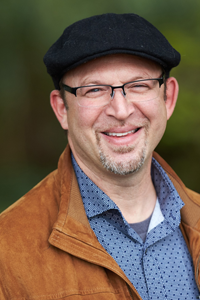Don't see what you're looking for?
Main Site
Berklee.eduCampuses and Schools

Kelly Davidson
Richard Greenblatt
For media inquiries, please contact Media Relations
- Leader of the Rich Greenblatt Quintet, Batterie, and UpSwing
- Performances with the Barcelona Symphony Orchestra, the Be-Bop Guitars, Kurt Elling, the English Chamber Orchestra, the Hide Tokunaga Quintet, Greg Hopkins, Joe Hunt, the Jazz Composers Alliance, Steve Langone, and the Rick DiMuzio Quartet
- Recordings with the Barcelona Symphony Orchestra, the Be-Bop Guitars, the Hide Tokunaga Group, the Jazz Composers Alliance, the Paramount Brass Quintet, the Rich Greenblatt Quintet, and Steve Thomas
- Recipient of Berklee Fellowship grant, 2006, for study with Joe Locke
- B.M., Manhattan School of Music
- M.M., University of Massachusetts
- Post-graduate studies, Harvard University
"In the world of performing arts, it is mandatory that a teacher continues to play. Maybe there are some exceptions, but I think you have to play in order to keep the spark of what you're doing alive in the classroom, and not be speaking in theoretical terms or from distant memories."
"When someone starts out playing music, it's just enjoying the experience of playing. But there's more asked of a musician than just simply playing music. It's showing up on time, calling people to try to get work, and relating to the audience and to your peers. Being a musician is a combination of teaching, writing music, conducting, and rehearsing a group, as well as playing."
"Ear training gives a broad foundation of musical skills that adds to one's musicianship. I want my students to be able to figure out rhythms accurately, sing pitches clearly, and hear common chords and harmonic movement in different instrumental and stylistic contexts. These are the skills we work with, regardless of our instrument or the style of music we play."
"I try to apply real music to ear training concepts so that my classes seem relevant. I bring in examples, mostly contemporary music, to illustrate the concept I'm trying to teach. I use a broad spectrum of music in my classes: everything from pop music that's in the top 20 this very week, to old jazz, new jazz, ethnic music, r&b, Afro-Cuban, world music. I'm always looking for new music."
